In general, the fewer items you have in the
cot, the better. There should be:
·
A brand new mattress. Secondhand mattresses
increase risk of SIDS. The theory is that bacteria collected in the mattress
from the previous child’s dead skin cells, vomit, urine and faces contributes
to the possibility of SIDS.
·
No cushions or pillows. A baby can be suffocated
by these. A child does not need a pillow until they are two years old. Until
then, the distance between their head and shoulders is so small, they don’t
need to make up for the space with a pillow.
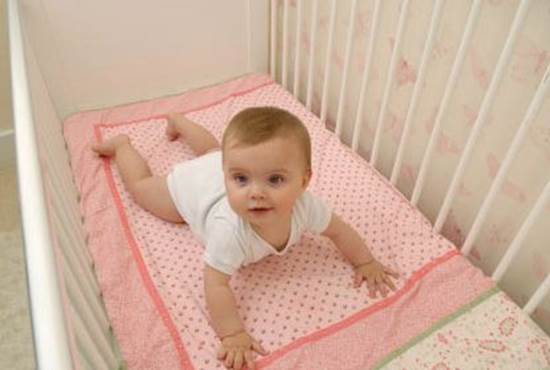
A
child does not need a pillow until they are two years old.
·
Only cellular and receiving blankets to be used.
Fluffy blankets and fleece are a risk for blocking the baby’s airway. Babies
are nasal breathers and their airways can be easily blocked by fibers and
fluff. The same goes for duvets and quilts, especially those that have feathers
or stuffing.
·
A wedge to keep baby on his side.
·
No cot bumpers, fluffy toys etc. If you would
like to have a Noo Noo for your baby make sure it’s a non-fluffy one.
·
Never cover the baby’s head.
·
Do not overheat your baby. Your baby will not
sleep if he is cold, so if he is asleep you can trust that he is warm and
comfortable. Babies have cold hands and feet even when they are warm. Just
dress your baby in one more layer than you would be comfortable with.
If you feel the room is too cold for the
baby, rather warm the room than having too many blankets and layers on the
baby. Avoid dangerous heating such as gas or bar heaters. Panel heaters that
attach to a wall tend to keep the room at a moderate temperature rather than
oil heaters and under floor heating, which can heat up a room too much. A good
baby room temperature is 24 degrees Celsius.
Smoking
Secondhand smoke increases the risk for
SIDS, along with all its other health risks.
·
Smoking by women during pregnancy increases the
risk for SIDS.
·
Infants who are exposed to secondhand smoke
after birth are also at greater risk for SIDS.
·
Chemicals in secondhand smoke appear to affect
the brain in ways that interfere with its regulation of breathing.
·
Infants who die from SIDS have higher concentrations
of nicotine in their lungs and higher levels of cotinine (a biological marker
for secondhand smoke exposure) than infants who die from other causes.
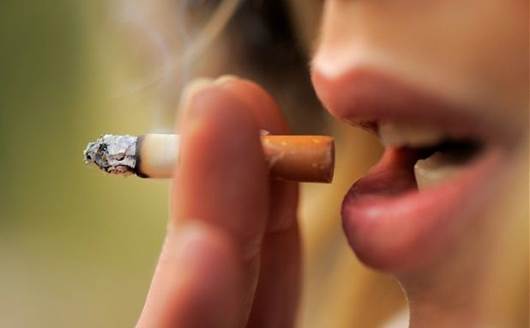
Smoking
by women during pregnancy increases the risk for SIDS.
If people who have just been smoking hold
your baby, toxins that remain on their clothes and skin can be transferred to
your baby. It also is over stimulating and confusing for your baby to smell the
strong smell of smoke.
Co-sleeping
What could be nicer than having your baby
close to you all night? While many mothers are scared to sleep with their
babies for fear of rolling onto them in the night, mother-infant co-sleeping is
really mankind’s most successful sleeping arrangement. It is physiologically
normal and maximizes infant survival and wellbeing. There are endless
advantages:
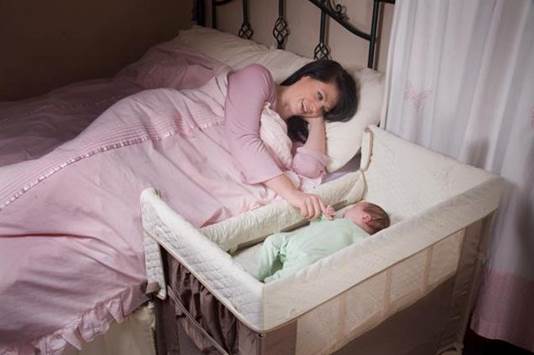
Co-sleeping
makes breastfeeding easier
Co-sleeping makes breastfeeding easier. All
you need to do is pop your baby on the boob and go back to sleep. Many moms
will just about continue sleeping while the baby is feeding. Even if you can’t,
not having to get out of bed makes night feeding so much easier.
Co-sleeping makes your baby feel safe and
protected. Your baby has been close to you for your whole pregnancy and feels
less isolated and alone when sleeping close to you. Professor J McKenna is an
internationally renowned co-sleeping advocate, and he actively promotes
co-sleeping because he says it is good for breastfeeding and can reduce the
incidence of SIDS.
Why to Consider Co-sleeping:
Sleeping close to your baby aids the
infant’s physiological regulation and supports their thermo-regulation, immune
and cardio-respiratory systems. The infant brain is only 25 percent developed
at birth and depends on the proximity and contact of the mother’s body for
growth.
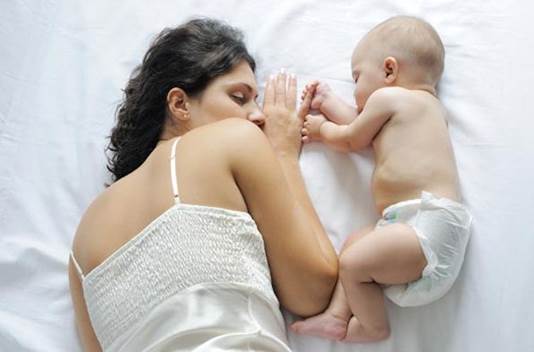
Sleeping
close to your baby aids the infant’s physiological regulation and supports
their thermo-regulation, immune and cardio-respiratory systems.
Sleeping close to your baby enhances the
attachment between parent and baby and ultimately strengthens the baby’s
psychological development.
Babies’ immune and digestive systems are
immature. Touch proponent Dr. Tiffany Field found that close contact and
massage increased the infant’s intestinal elasticity, released more growth
hormones and reduced stress, thereby increasing calorie absorption and weight
gain by as much as 47 percent.
Babies have immature respiratory and
thermo-regulatory systems. The relationship between involuntary and voluntary
breathing, especially at sleep, seems to be regulated when the baby is
co-sleeping. An infant is unable to shiver to keep his body warm. Closeness to
the parent during the night acts as a buffer between the infant and the
environment.
Babies do not have to be in the same bed to
co-sleep. A bassinet next to the bed where you are in close range to detect
each other’s signals is also good.
Professor J McKenna’s safe Co-sleeping
guidelines:
·
Sleep together on a firm, flat surface, with
light blanketing, and never cover your heads. Don’t keep any stuffed animals or
pillows around the infant. No fluffy material should be used either.
·
Persons using sedatives, medication or drugs or
who are intoxicated should not co-sleep with a baby.
·
There should be no smoke in the room.
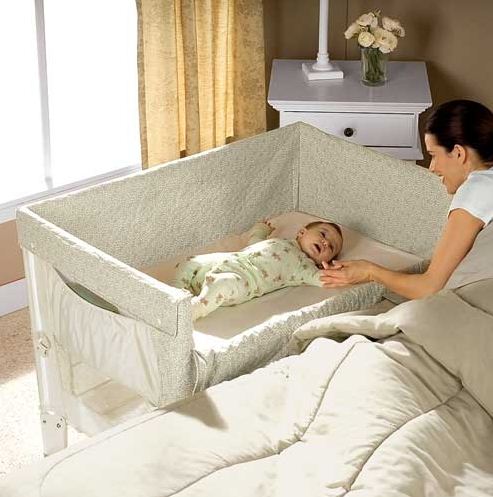
Sleep
together on a firm, flat surface, with light blanketing, and never cover your
heads.
·
Excessively obese persons, who may not feel
where exactly or how close their baby is, should have their baby sleeping
alongside them but on a separate surface. If you have long hair, it needs to be
tied up so as not to tangle around the baby’s face and neck.
·
You should never co-sleep with a baby on the
couch where he could fall off, slip into the crevice or get wedged.